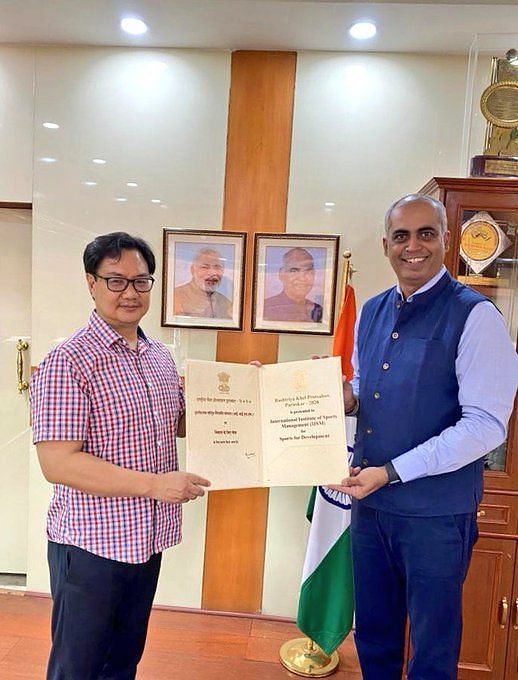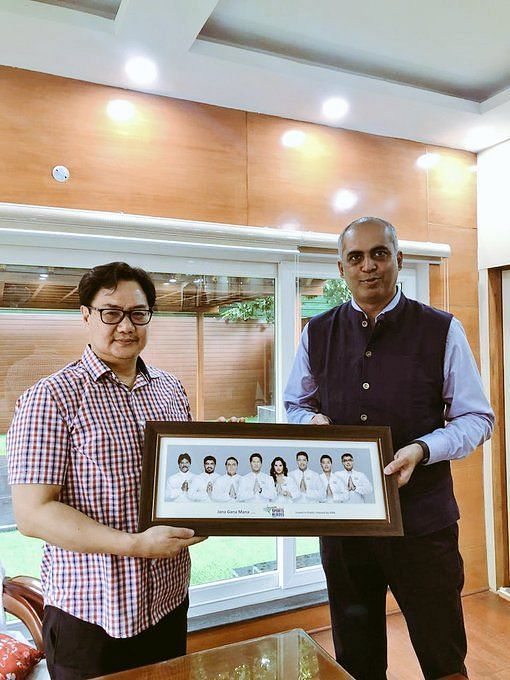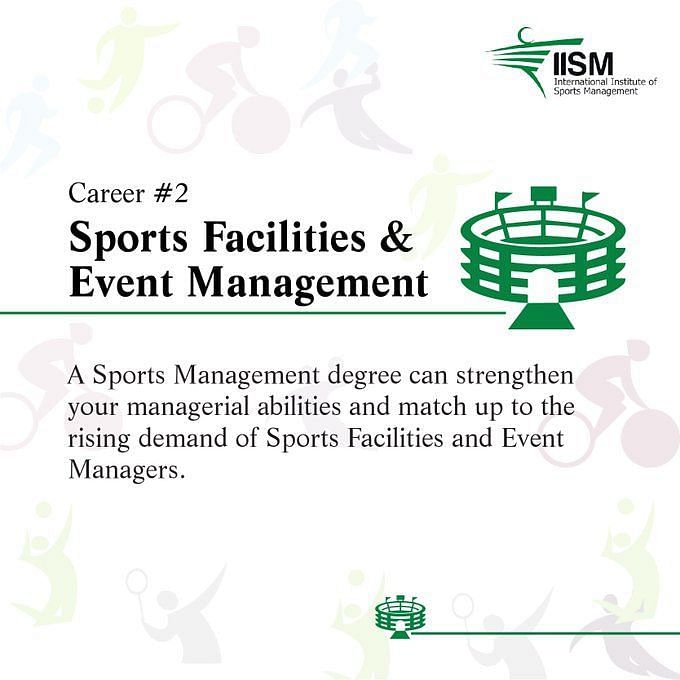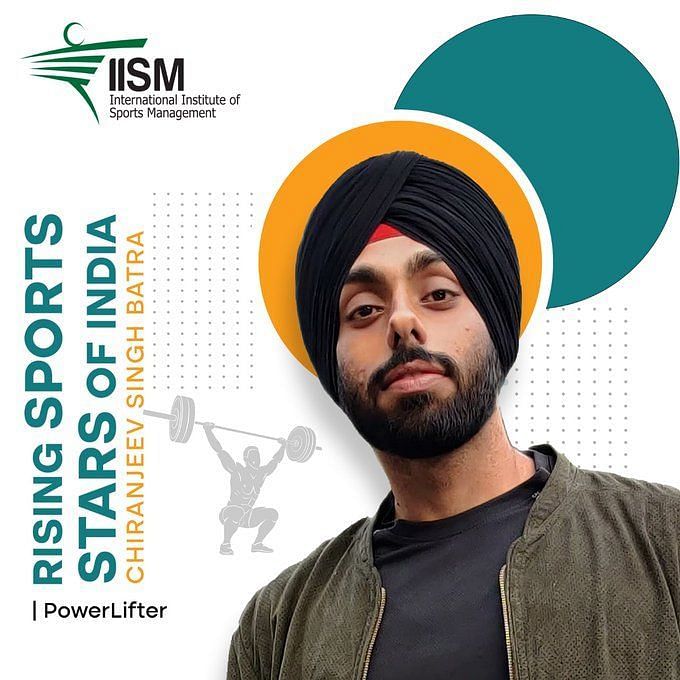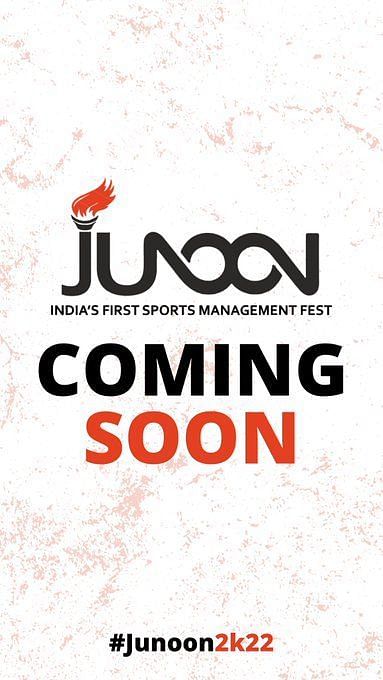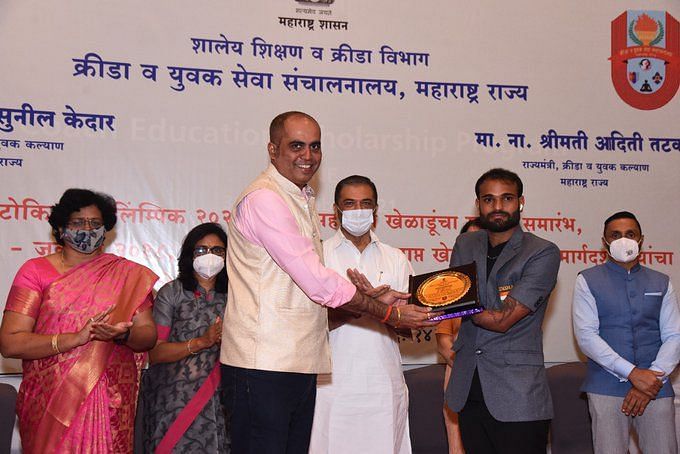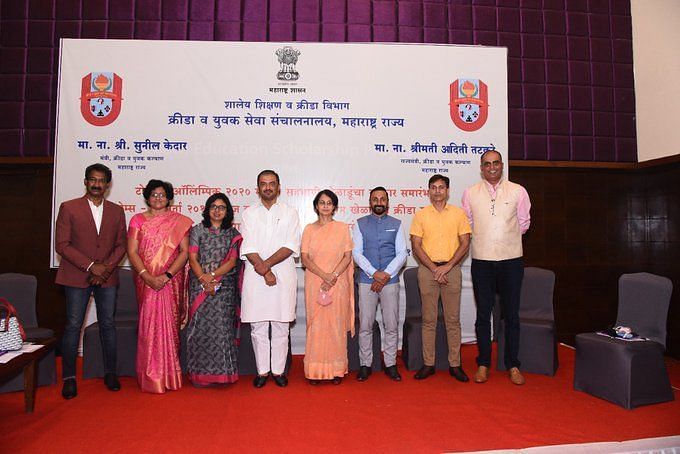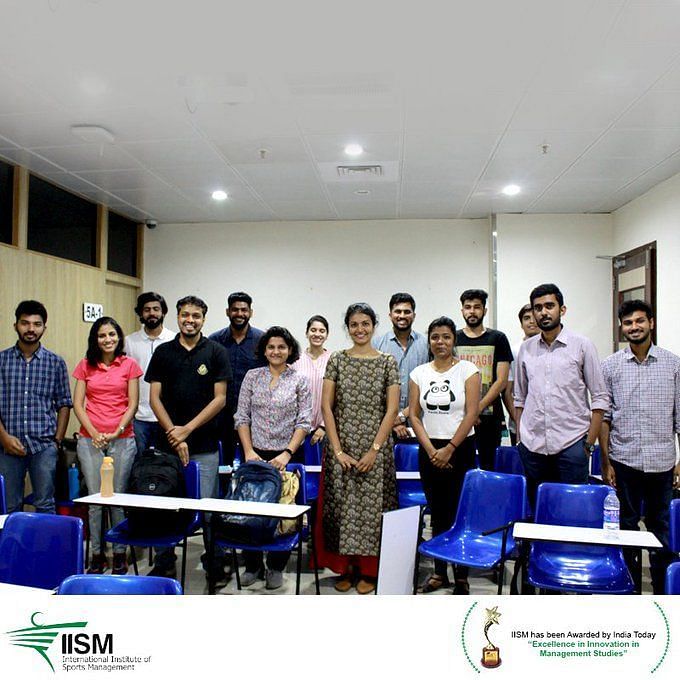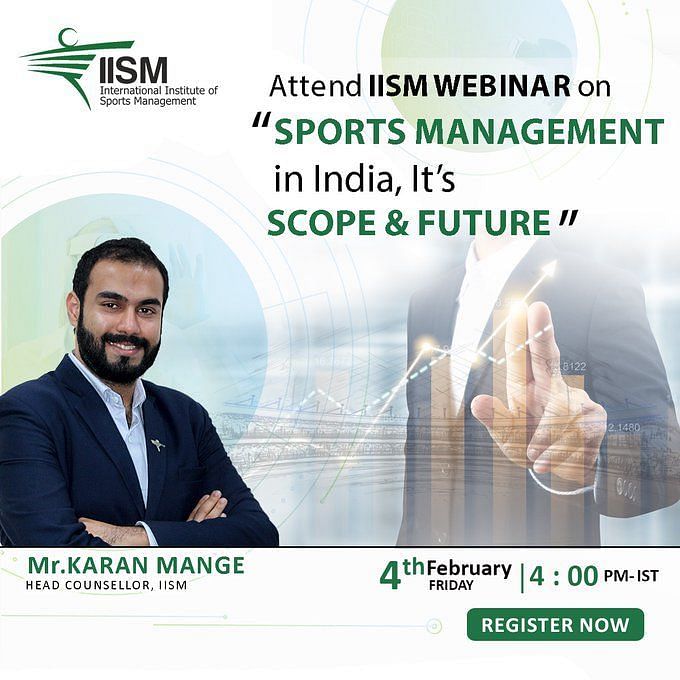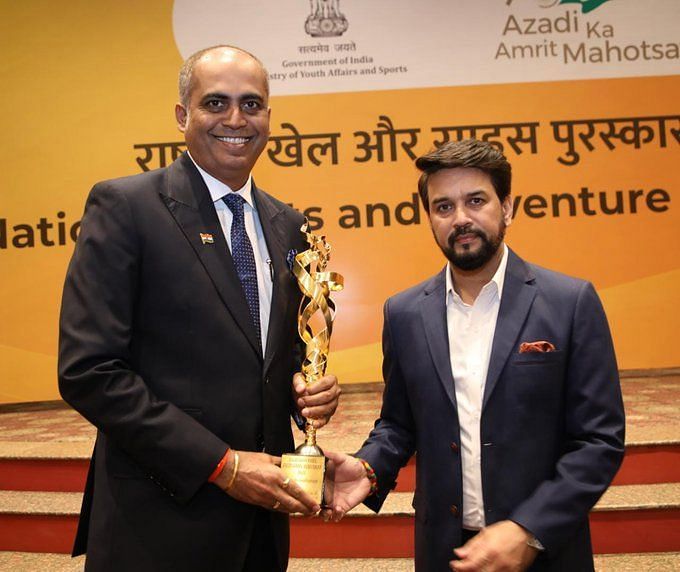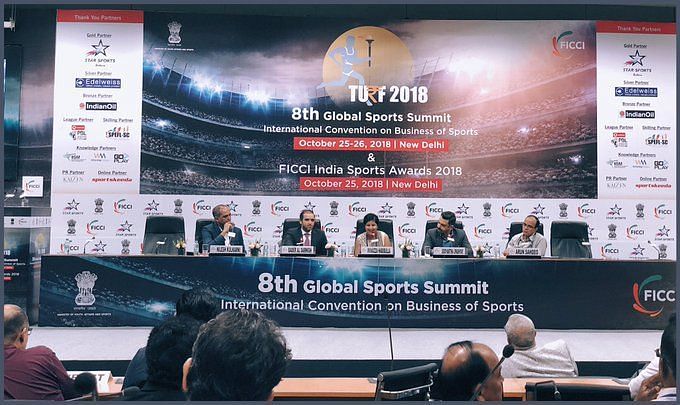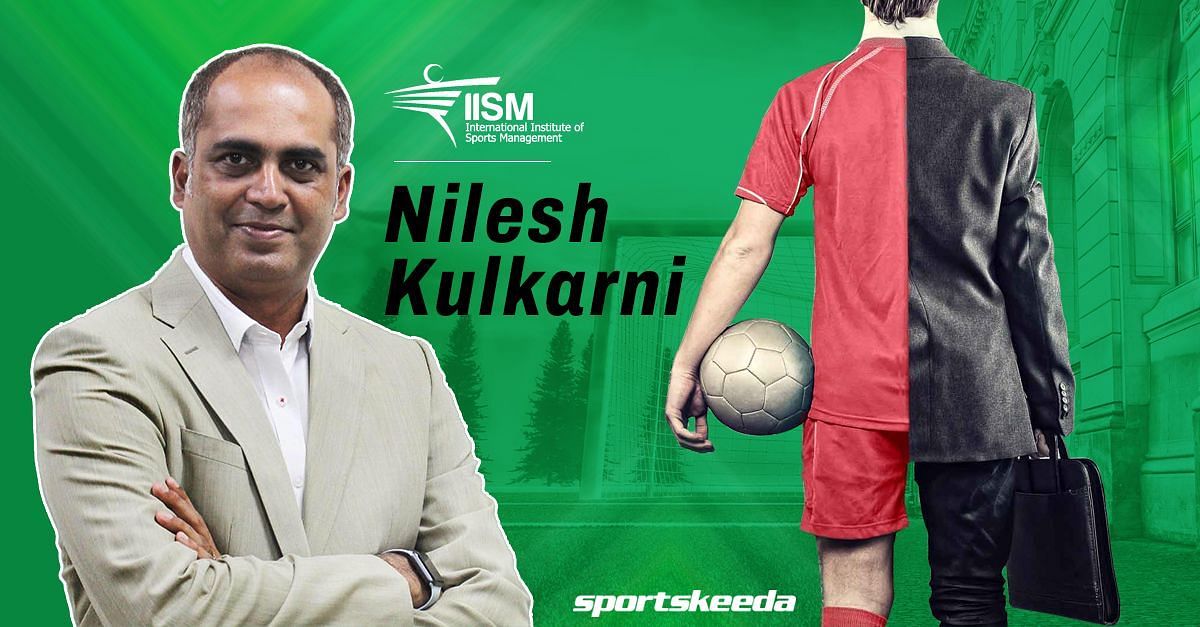
"Sports management education in India is at a very nascent stage"- IISM founder & director Nilesh Kulkarni
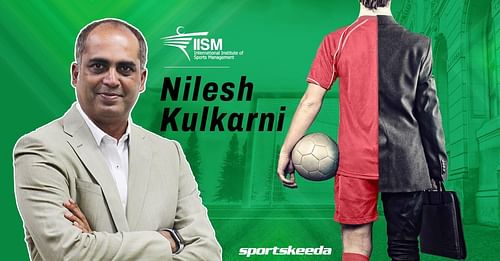
Education in sports is yet to be normalized in India. The International Institute for Sports Management (IISM), one of the top sports management institutes in the country, is striving to change this narrative and develop competent sports professionals, That's because it's aware of the amount of opportunities available for aspiring individuals to build a career in this sector.
Today, there are millions of sports fans across the globe. India is one country that has some of the most passionate and ardent sports fans in the world.
Yet, not all of them pursue a career in sports despite having the aptitude and capability to do so. One of the main reasons behind this was the lack of a proper institute that would be ready to impart education about the sports industry and provide a platform to provide jobs in the vertical of their choice.
Nilesh Kulkarni, a former India cricketer who played alongside great players like Sachin Tendulkar, Rahul Dravid, Mohammad Azharuddin and several others, founded IISM in 2009 with the aim of providing sports as an educational subject and making it a viable industry for people to enter into.
Sportskeeda recently caught up with Nilesh Kulkarni to understand more about the institute's programs, initiatives, and what the future holds in store for them and the aspiring individuals who wish to join them.
Although establishing IISM was quite a task, developing a proper curriculum that would cover all the bases in sports education was a challenge in itself. Nilesh talked about some of the problems they continue to face in this regard and how they are tackling the same by saying:
"The biggest challenge that we at IISM continue to face is the absence of benchmarking for sports education in India. I will consider this as one of the pluses of being the pioneer of sports management education in the country. There was no structure to formal education in sports management in India. We, along with our researchers, industry experts, and advisory board, have curated these courses to supplement the demands of sports management professionals in the country".
He also acknowledged that designing a curriculum was not an exact science and they have improvised on it over the years:
"We have learned from the mistakes we have made in the past and have continuously strived to better our curriculum, include live learning exposure and make the students ready for the sports industry. We started our journey of sports management education in 2010 with our first PG batch of 80 students, and today we stand at 500+ students at our campus across all the courses. 1800+ IISM alumni are working in top sporting organizations in India and overseas".
During its initial years, IISM launched a Post Graduate program, aBachelor's degree and a Master's degree course in sports management. These three courses provide students with ample knowledge about the industry, through lessons from professionals and by undertaking of interesting industry projects. But in the last couple of years, the institution has recognized the importance of the sports events market too.
Today, there are several premier sporting leagues and tournaments in the world. But it takes a massive number of people, from sponsorships to operations to broadcasting, to successfully conduct the event. IISM wants to help students enter this vertical too, and they launched the Post Graduate Program in Sports Management with this goal in mind, with an emphasis on several aspects of sports event management.
Nilesh explained the thinking behind starting this course by saying:
“Event management as a career option has been prevalent in India for over 2 decades now whereas sports management has evolved over the last decade only. Sports in India is still event-based, which happens over a set number of months. A PGP in Sports Management is a 11-month autonomous course designed for those who have graduated in any stream and want to make a career in sports with an additional focus on sports events. This course is launched keeping in mind the requirements we get regularly from sporting organizations who engage in the sports events business".
Speaking about the kind of jobs some IISM students have been able to land at premier sporting events, including the IPL, PKL, Khelo India and Tata Mumbai Marathon, he said:
"Our students have worked on mega events like the IPL, PKL, Khelo India - Pune, Guwahati & Bhubaneswar edition, Tata Mumbai Marathon and many more. A recent study by GroupM estimated the Indian sports industry at Rs 5894 crore in 2020 & upwards. These numbers themselves are a testimony to the growth of sports and events in India which needs to be supplemented with trained sports management professionals".
Practical exposure during Covid 19, IISM experiential programs and newer initiatives
The outbreak of the Covid-19 pandemic greatly challenged every industry, including the educational sector. However, this was an even bigger problem in the sports education vertical, since practical experience and on-ground exposure play a lot of importance in the development of sports management students.
Reflecting on the challenges and restrictions posed by the pandemic, Nilesh said:
"We at IISM believe that real learning happens only when an education program is curated with the right blend of classroom training & practical exposure. Our students get regular opportunities to work on various sporting events in the form of live exposure. During the first lockdown, sporting activities across the country stalled. At this point, we initiated ample research projects for our students to connect with the field.
Besides the India vs New Zealand Test Match at Wankhede Stadium, he also mentioned other events IISM students worked on after the initial return to normalcy in 2021.
"Eventually, over a period of time, our students developed skills with broad application, including critical thinking, problem solving, communication & collaboration. The early 2021 showed signs of sporting events resuming back to normalcy. Our students worked on various events like Prabodhankar Thackeray Kreeda Sankul, India vs New Zealand test match at the Wankhede Stadium, Mumbai, Viviana Events (Thane Lake City Half Marathon), RR Motorsports Management Pvt. Ltd. (IndiKarting Racing), Rent A Cycle (cyclothon) and many more".
Covid-19 also made it hard for IISM to continue with some of its existing programs, especially ones that involved travel. In 2020, the institution launched an international sports experiential learning program to Spain.
Football is one of the most watched sports in the world, and while the Premier League, Ligue 1, Bundesliga and Serie A have their own fandom, La Liga has made its name as one of the best leagues in the world thanks to the quality of players playing in it and a sound administrative system.
Barcelona and Real Madrid, in particular, are two of the biggest clubs in European football and IISM wished for its students to understand the workings of these organizations, so as to enable them to have these learning experiences, which they could then apply in the "Indian context". With visits to the CR7 gym as well as the Santiago Bernabeu and Camp Nou stadiums, the experiential learning is sure to have been mesmerizing and inspirational at the same time.
Although they were unable to provide a similar experience in 2021 due to the pandemic, Nilesh shed light on the institution's plans for the same in 2022:
The primary objective of organizing the international sports experiential learning program to Spain was to give our students a flavor of international sports & its business and to learn how to apply the same in the Indian context. Our students attended a workshop at the La Liga Headquarters, visited the CR7 Gym and had an intense workout session with Cristiano Ronaldo’s trainer. The students also visited the Camp Nou & Santiago Bernabeu Stadiums to gain first-hand experience of the sporting infrastructure in Spain.
Speaking about the main objectives of these learning experiences, he said:
This program ended with a visit to the Global Sports Innovation Center - Microsoft & with an interactive session with the Head of Marketing of FC Barcelona. Such programs help students to equip them with international knowledge of the business of sports. IISM strives to provide such learning experiences too and hence is already in advanced discussions with a noted sports tourism company to plan a similar program for its students in 2022."
But while international experience is a part of the learning process, student welfare can be built through other interesting programs as well. The "Junoon" initiative, which is India's first sports management fest, caught the eye due to its uniqueness. Moreover, it was entirely managed by the students, who conducted three successful editions of the event up until 2020.
Covid-19 prevented the scheduled fourth edition last year, but Nilesh laid down the importance of the initiative and the plans to conduct the same in 2022:
"Junoon is an IISM initiative where conceptualization to completion, everything relies on the shoulders of its students. The students have successfully conducted three editions of the fest up until 2020. As per the Gov. of India & Gov. of Maharashtra directives, the campus was partially open to its students. IISM attracts 40% of its students from cities over and above Mumbai. These students were remotely attending their sessions. It's only been a month since our campus has been thrown open to the students fully. IISM management has already selected the core committee for Junoon 2022. It's only a matter of time before Junoon - An IISM student initiative will be back attracting students from more than 30+ colleges in Mumbai & participation in over 5 different sports".
Although "Junoon" is a fest amongst several different colleges, IISM also launched the "Jeet" initiative this year, which is an intra-college fest. However, like the aforementioned program, "Jeet" is also completely organized by the students and is a sporting initiative covering several games and involving a number of talented players.
Since several IISM students are also athletes, such fests ensure a good atmosphere around the campus and also help in team-building exercises and engaging the critical thinking faculties of the individuals.
Speaking about what IISM is trying to achieve through this event, he said:
"Jeet is an IISM intra-college festival - by the students of IISM, for the students of IISM. We firmly believe in the holistic development of our students, where peer-based learning plays a very crucial role. Before Covid-19 pandemic, we regularly organized various sporting events, primarily because 70% of our students are active athletes. Our students have represented their individual sports at international, national & state levels. These sporting activities induce team learning and encourage competitiveness on the field over and above in the classroom.
He enlisted the benefits of the "Jeet initiative" by saying:
"Jeet is one such student initiative where students plan various sports. Cultural & business competitions which encourage learning from peers, team work, agility & critical thinking. The student community across the globe had to put a halt to their sporting activities due to the pandemic. Jeet is one such humble attempt to bring our students closer and wipe out the one-on-one disconnect they had while studying remotely".
Apart from IISM's initiatives and programs, Kulkarni has been a part of several other committees and organizations that have the aim of bettering sports development in the country. One such enterprise is the International Sports University (ISU), which was established in Pune last year. The aim of ISU is to prepare a talented young force that would in turn help transform Maharashtra and India into a sporting superpower.
Being a proud member of the same, the IISM founder provided insights on the kind of goals the university can achieve in the coming years:
"It is encouraging to see the State Government of Maharashtra taking a keen interest in establishing the International Sports University. This initiative will not only support what IISM has been doing for the past 11 years, but will create a path for athletes, coaches & sports scientists, management & administration and an opportunity to standardize education & career opportunities in the field of sports".
He pointed out parallel industries that succeeded due to government establishments in the 80s by saying:
"The way the business management & hospitality industries grew in the early 80’s due to the establishment of government recognized education providers, the International University will do the same for the sports industry in the coming years".
IISM placements, new learning opportunities and future roadmap
An important element for students after education is the pressure of landing a good job. One reservation several aspiring sports management professionals have is the perceived lack of jobs in the industry, particularly because it is a fairly new one in the country.
IISM, however, solves these issues with a clear plan of action. They have specific programs to mentor the students, develop their interview skills, and work on communication gaps while they have also established a specific department to provide individuals with placements in top lucrative companies. Nilesh shed light on the same by explaining IISM's "P2E program":
"The course delivery of IISM consists of the right mix of classroom learning & on-field live exposure. Classroom learning equips students to make their foundation of concepts clear. At the same time, live exposure lets students apply these concepts into practice first hand. IISM also runs a P2E i.e Passport to Excellence program which imparts to them various life skills which are of utmost importance to make them ready for the sports industry. IISM has a dedicated Corporate Relations Department, which is responsible for meeting sports entrepreneurs & hiring managers to create and find relevant internship & placement opportunities across the country."
Sports is ever-changing. New verticals are opening up in this industry every day and it is the job of an educational institution to keep up with it. IISM has done the same and much more as it is aware of the new job roles in the sports industry and is always trying to innovate courses in a way that will invite more students to pursue a career in this sector.
While Nilesh accepted that the world of sports is constantly changing, he talked about how IISM adapts to them by saying:
"Sports management education in India is at a very nascent stage. The curriculum requires constant alterations since the industry requirements and skills that an aspirant needs to have are constantly changing. In recent times, we have taken into account the new job roles that are getting created under the umbrella of sports management. Sports Retail, sports business development & social media marketing, sports tourism, sports media & journalism are some roles that are in high demand. We have created short courses on these areas which are not covered by the course curriculum so that students don’t miss on having the knowledge which will be of use if they get jobs in these segments of sports management".
While innovation and adaptability is one aspect, working towards specific goals and objectives is another. Every institution has a roadmap for the future or has a broad perspective about where the organization needs to be after a couple of years or even a decade.
However, in India, the sports industry is still developing and it needs the help of institutions like IISM to contribute to the ecosystem and turn the country into a global sporting superpower.
Nilesh is well aware of this and has shaped IISM's long-term objectives similarly. :
"If India wants to become a sporting superpower, it will need the contribution and support of all its stakeholders. We at IISM aim to be the top-notch Sports management & allied education provider in the Southeast Asian region. We want to help India's sporting fraternity with industry-ready sports professionals who will help India create a positive sporting ecosystem. We intend to offer varied courses in sports management and allied areas in traditional and online format. These courses are a need of the hour for the industry and the market is ready to accept it with full force".
IISM understands the kind of gap that has been created between individuals who want to work in the sports industry but do not possess the measures, means and proper education to do so. IISM is laying the foundation for the same to happen through their programs, learning experiences, practical exposures, initiatives, and the advice of several sports professionals.
In the last 12 years, they have built something they can be proud of, especially since few would have given them a chance to succeed in this vertical. But that is the essence of being a pioneer, and Mr. Nilesh Kulkarni has certainly been one for the Indian sports industry and is continuing to do so in his own right through IISM.
